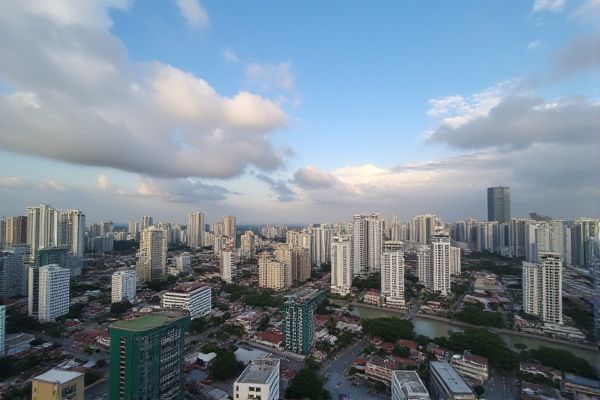
Safety and crime rates in Thailand: Low violent crime rates. Petty thefts common in tourist areas. Police presence in urban centers. Scams targeting tourists prevalent. Safe public transportation options. Emergency number: 191. Community policing initiatives increasing. Avoid political protests or gatherings. Use licensed taxis, ride-sharing. Secure valuables in hotel safes.
Low violent crime rates.
Thailand boasts a relatively low homicide rate, registering at 2.4 per 100,000 people in 2020, significantly below the worldwide average of 5.9 per 100,000 people. This positive trend reflects a decline from 3.4 per 100,000 in 2010 to 2.4 per 100,000 in 2020. This reduction in crime is largely attributed to enhanced law enforcement, heightened public awareness, and ongoing economic development. For more detailed insights, you may explore the [Homicide Rate in Thailand](https://thailawonline.com/homicide-rate-in-thailand/). Continued efforts in these areas are crucial in maintaining and further reducing the country's homicide rates.
Petty thefts common in tourist areas.
Petty thefts, including pickpocketing, purse-snatching, and burglary, are common occurrences in tourist areas of Thailand. These incidents are particularly prevalent in crowded markets, tourist sites, and on public transportation in cities like Bangkok, Pattaya, Chiang Mai, Phuket, and Koh Phangan. Thieves often utilize tactics such as using razors to cut into purses and bags, making valuables a frequent target for theft. Additionally, long-distance bus routes and budget guesthouses are known hotspots for these crimes. For more detailed information on these issues, you can visit the Country Reports website.
Police presence in urban centers.
In Thailand, particularly in urban centers like Bangkok, the Royal Thai Police maintains a significant presence through various units such as the Metropolitan Police Bureau, which operates numerous police stations with varied numbers of officers, and the Tourist Police Bureau, which focuses on assisting foreign travelers and enhancing their security. The police also utilize technology and community policing to reduce crime rates and improve response times. For further information, you can learn more about the Royal Thai Police and their operations.
Scams targeting tourists prevalent.
Scams targeting tourists are widespread in Thailand, involving various tactics such as gem scams, time-share and holiday club rackets, taxi and tuk-tuk scams, and scams related to tourist attractions and services. These deceptive practices often result in victims losing significant amounts of money. If you are planning to travel to Thailand, it is crucial to stay informed about these schemes. For more detailed information, refer to the New Zealand Embassy website, which outlines various scams and offers guidance on how to avoid falling victim to these fraudulent activities.
Safe public transportation options.
Public transportation in Thailand, particularly large government-operated buses, is considered safer than private minivans and buses due to better maintenance and adherence to speed limits. Additionally, options like the BTS and MRT Urban Rail Systems in Bangkok are reliable and safe for travelers.
Emergency number: 191.
In Thailand, the general emergency number is 191, which serves as the primary contact for all emergencies, including medical, fire, crime, and natural disasters, and can be called from any phone. If you cannot speak Thai, you can also call the Tourist Police at 1155 for English assistance.
Community policing initiatives increasing.
Community-level crime prevention networks in Thailand, involving 50 local residents working with police stations, have successfully solved over 14,000 issues. These issues include social problems, environmental concerns, personal conflicts, and money-related disputes. This collaborative effort highlights the effectiveness of community policing in maintaining peace and order. For more information on this initiative, visit the website of Nation Thailand.
Avoid political protests or gatherings.
To ensure safety in Thailand, it is advisable to avoid areas where demonstrations and large gatherings are taking place. It is important to follow the instructions of local authorities and to regularly monitor local media for information on ongoing protests. This approach helps minimize the risk of getting caught in potentially violent or disruptive situations. For detailed guidance and updates, visit the official website of the Government of Canada's Travel Advisory for Thailand.
Use licensed taxis, ride-sharing.
In Thailand, using licensed taxis or ride-sharing services like Grab is considered safe, with features such as driver verification, emergency assistance, and live location sharing that enhance overall safety. Generally, taxis in Thailand are regarded as secure, particularly when opting for metered taxis or utilizing the Grab app, which provides transparency and additional safety measures to ensure a secure ride. To learn more about safety measures and crime statistics, you can visit the Statista website for detailed insights on crime rates by type in Thailand.
Secure valuables in hotel safes.
In Thailand, it is generally safe to store valuables in hotel safes, particularly in establishments with good reviews and reliable security systems. However, it's advisable to avoid leaving expensive items in plain sight and to use additional security measures if necessary. For more detailed insights on this subject, you might find the article on Hotels in Thailand quite informative. Ensuring your peace of mind while enjoying your travels is paramount, and understanding the security protocols of your accommodation can significantly contribute to a stress-free trip.
